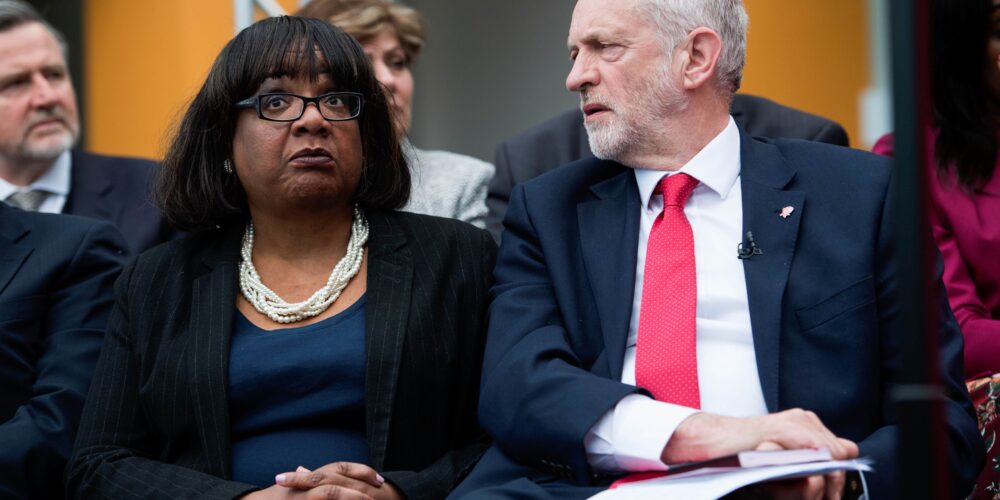Ten years on from the unlikely victory of Jeremy Corbyn in the British Labour Party leadership contest, and his subsequent exile from the Labour Party following a Zionist-led smear campaign over accusations of antisemitism, it has to be asked if there’s anything new to say about that brief moment when it looked like left-wing politics were entering the British mainstream for the first time in decades. No recent topic on the left was as endlessly pored over and dissected (particularly online) to absolutely no end or insight in the years from the 2019 Tory landslide to the outbreak of the genocide in Gaza, with the strengths and failings of the Corbyn project and the British Labour Party being re-litigated to the point of absolute tedium.
This book’s great strength is that it eschews the conventional narratives of seeing the Corbyn moment as a messianic rupture wherein radical politics came back from the dead, having been irrelevant since the miners’ strike, or the left sabotaging its one chance at power. Beckett instead situates the Corbyn moment as a chapter in a still-unfolding story of the post-1968 context for the British left, focusing on the careers of Tony Benn, John McDonnell, Ken Livingstone, Diane Abbott and Jeremy Corbyn as they attempted to forge political careers in a rapidly changing society.
The Old Labour tradition was already in decline by the end of a decade that had seen it govern from 1964-70. Ken Livingstone described joining it in 1969 as an instance of “a rat boarding a sinking ship”. This was a time in which traditional emancipatory narratives largely rooted in ideas of class struggle broke down on the mainstream left across Western Europe and led to an ongoing process wherein questions of race, gender and sexuality alongside issues of international solidarity became much more prominent. The question became one of what was inherently conservative parliamentary politics – trade unions and local government could be for those wanting to bring about change.
Beckett argues incisively that, using these five Labour rebels as examples of wider trends, many aspects of British society were changed for the better through the visibility of leftist positions and efforts to use existing institutions as vehicles for change. Whilst none of these were unqualified successes, real victories were won out on questions of race, gender, sexuality and international solidarity which have to some extent mainstreamed ideas which were once totally marginal and brought about changes in attitudes, particularly towards minorities.
When read in this context, the Corbyn moment comes to be seen as far less the end of the British left than a stage in its long-term reinvention. For instance, it’s hard to imagine the election of four independent MPs running on an explicitly Gaza-centred platform in the 2024 election had Corbynism not led to a renewed confidence amongst leftist organisers and willingness to work against the Labour Party – to say nothing of the mass protest movements that have emerged since October 7th.
It’s especially interesting to read this as a leftist companion of sorts to Adam Curtis’ recent documentary series Shifty, which traces the impact of monetarism and hyper-individualism through Britain over most of the period covered here. Whilst Beckett can often seem over-optimistic in his read of more recent events, he does find a space for the left in the broader history of the last 50 years in Britain and convincingly argues for its overlooked importance at a time when it appeared to be largely irrelevant or non-existent. Perhaps there is much for Irish activists, particularly those whose interest in leftist politics was kindled by following the Sanders and Corbyn campaigns a decade ago, to learn about the pitfalls and advantages of engaging with existing institutions from reading this account of the context for the Corbyn moment.






